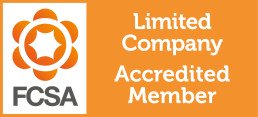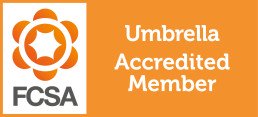Share this article

Failing to meet the self-assessment filing deadline almost certainly results in a £100 penalty from the government. However, HMRC will not enforce penalties for anyone who submits their 2020/21 tax return up to a month after the regular deadline for the second year in a row. Keep reading, and we’ll explain more about this unexpected announcement.
Fines will not be enforced for anyone who files by the 28th February 2022
In a surprising yet welcome move, HMRC has confirmed that late filing penalties will be waived by up to a month for the second year in a row. The tax agency reported that only 6.5 million customers had already filed their 2020/21 tax returns – just over half of the 12.2 million required to do so.
Angela MacDonald, HMRC’s deputy chief executive, said:
“We know the pressures individuals and business are again facing this year, due to the impacts of COVID-19.”
“Our decision to waive penalties for one month for the self-assessment taxpayers will give them extra time to meet their obligations without worrying about receiving a penalty.”
Taxpayers who are worried about being unable to pay their self-assessment tax bill by 31st January will not receive a late payment penalty if they pay their tax in full or set up a time to pay arrangement by 1st April. Please be aware; interest will still accrue on any unpaid tax from 1st February.
Do I need to file a self-assessment tax return?
You may be required to file a self-assessment tax return for the 2020/21 tax year if you were:
- Self-employed as a ‘sole trader’ and earned more than £1,000 (before taking off anything you can claim tax relief on)
- A partner in a business partnership
If your only income is from a pension or PAYE wages, you do not need to submit a self-assessment tax return. However, you will need to submit a tax return if you receive any other form of untaxed income, such as:
- Income from dividends, investments or savings
- Foreign income
- Income from renting out a property
- Tips or commission
- Some COVID-19 grants or support payments
Reporting coronavirus grants and support payments on your tax return
If you received a payment or grant to support you during the COVID-19, you might be required to report this on your tax return if you are:
- A business
- Self-employed
- In a partnership
You can find more information about the payments you need to report and how to report a grant or payment on your tax return on our recent blog.
Our dedicated Personal Tax team has completed over 25,000 returns
Filing a self-assessment tax return can often be time consuming and stressful. Why not enlist the help of our expert Personal Tax team, who will take care of everything for you, from completing all the relevant forms and calculating your tax refund or liability to submitting your tax return to HMRC.
To get started, please complete the short form on our website or call 01707 871622.
About Churchill Knight
Founded by an IT Contractor in 1998, Churchill Knight has become one of the most respected contractor accountants in the UK. We’ve helped over 20,000 contractors with their accountancy requirements. As well as our accountancy services, we also have an industry-leading PAYE umbrella company and dedicated in-house personal tax department. Whichever service you choose, you can move forward with complete peace of mind. We are proud of the reputation we’ve built over the years, and our FCSA accreditation proves how committed we are to compliance within our sector. Keep reading…


We're regularly adding new, helpful content
The Churchill Knight blog is regularly updated with helpful content for contractors and freelancers – especially articles that answer the most frequently asked questions about umbrella companies! Please pop back shortly to see the latest articles written by Andrew Trodden (Marketing Manager) and Clare Denison (Marketing Executive).
